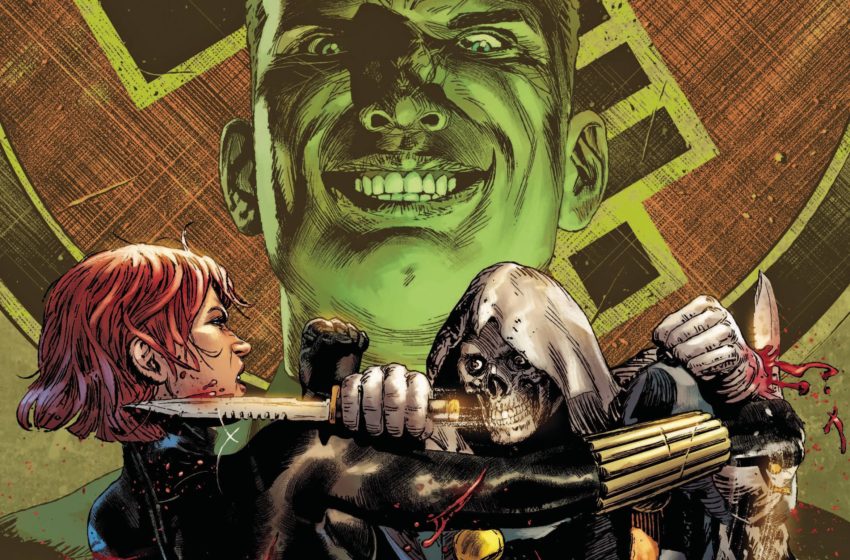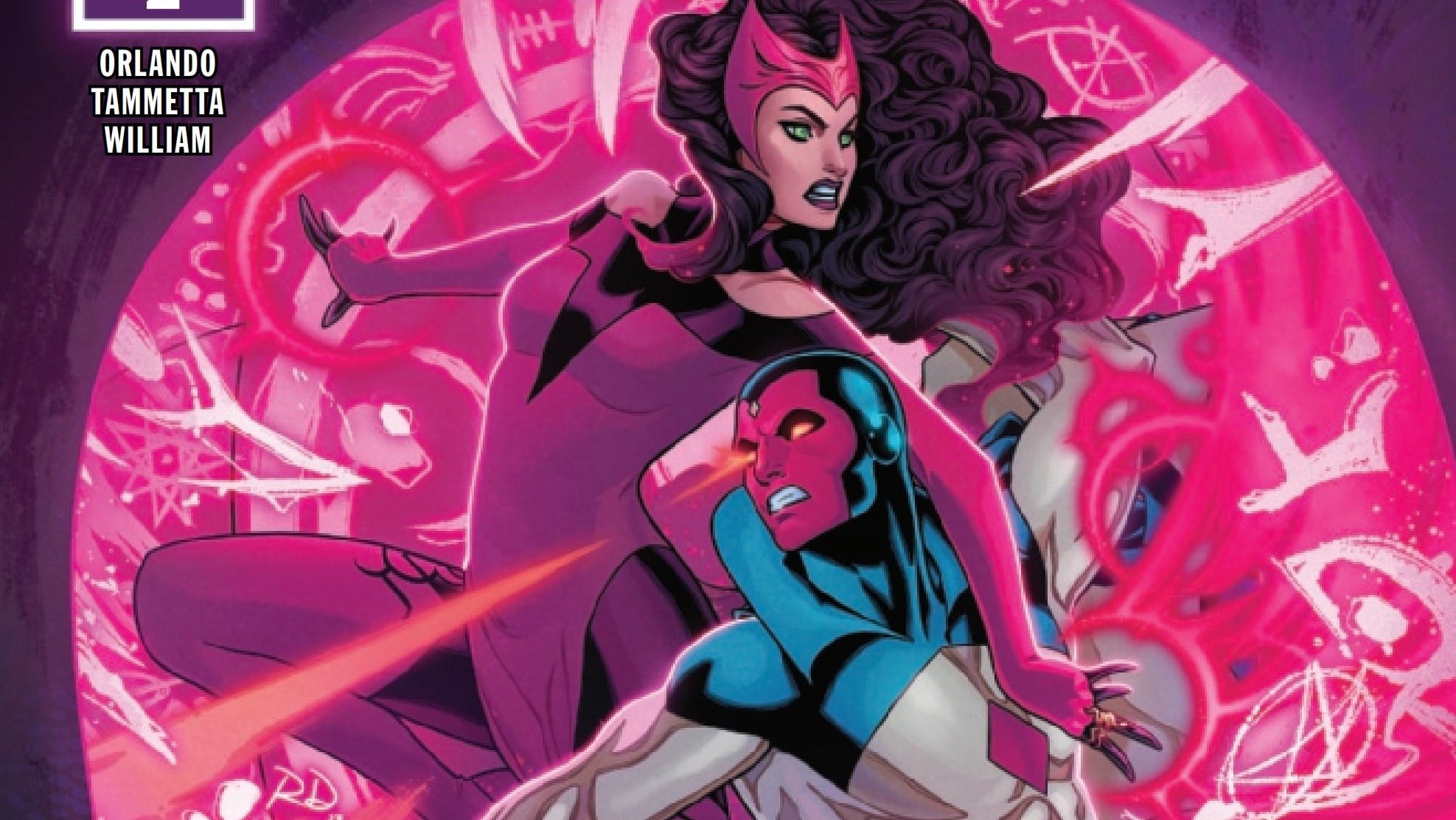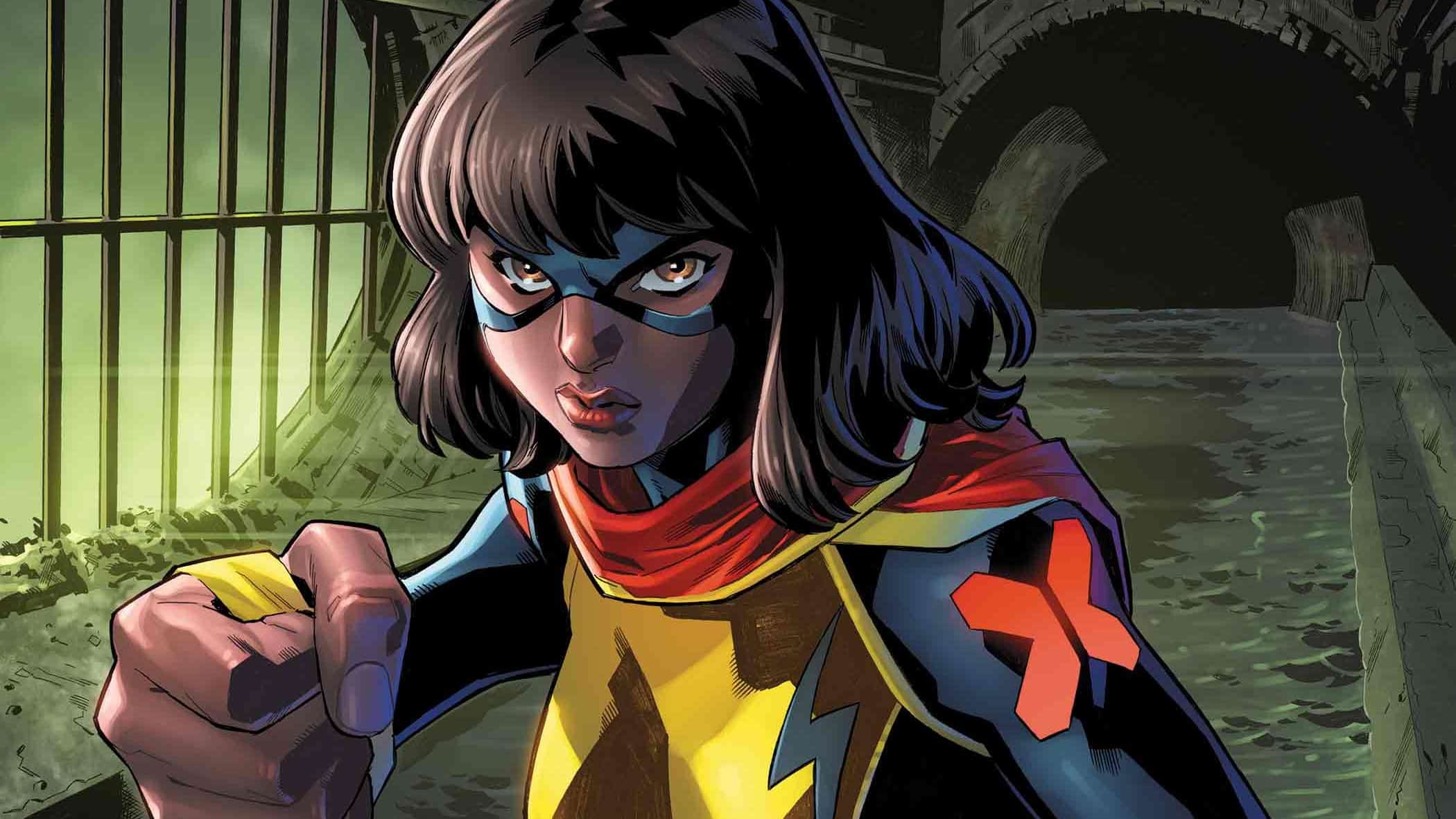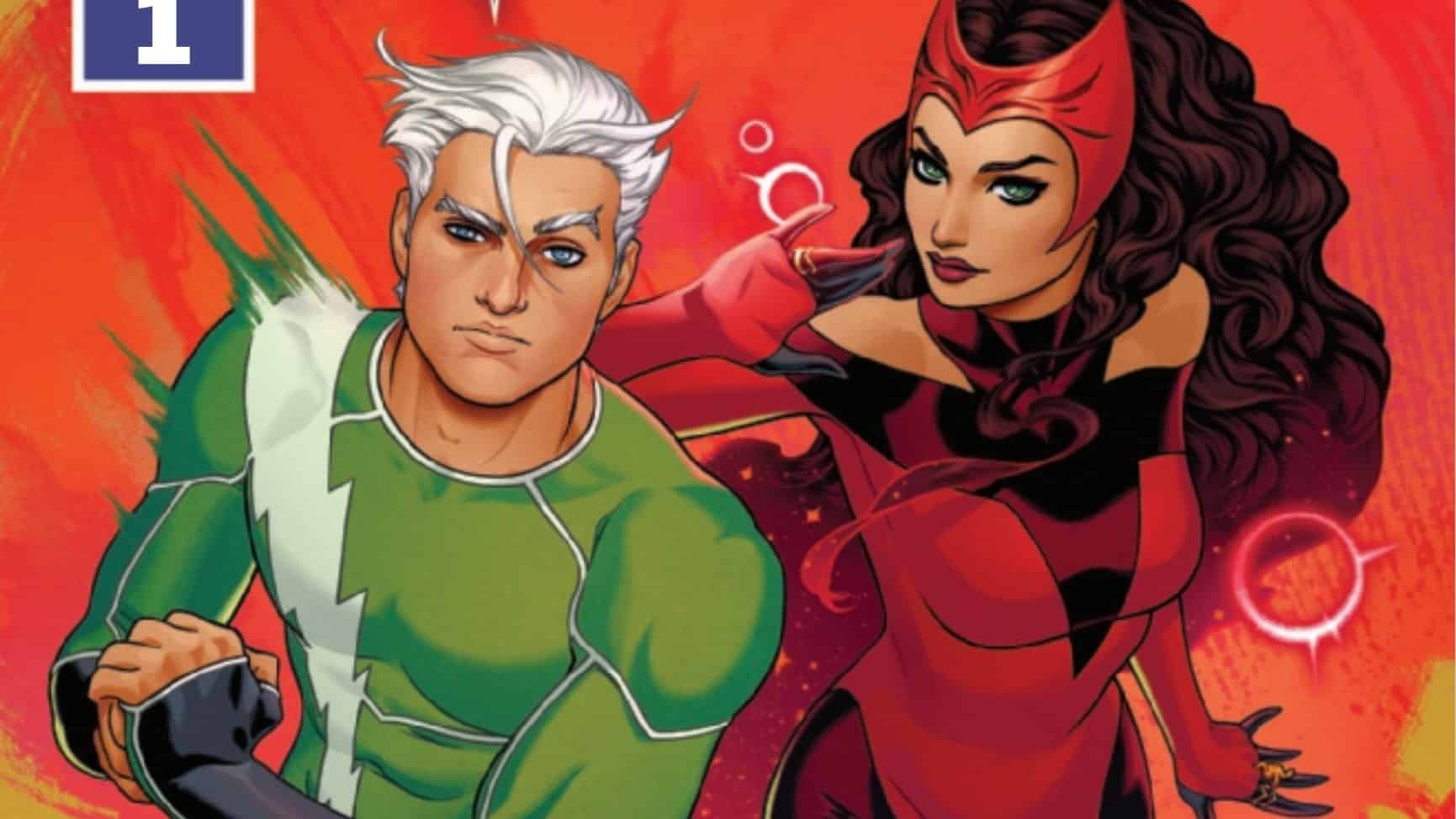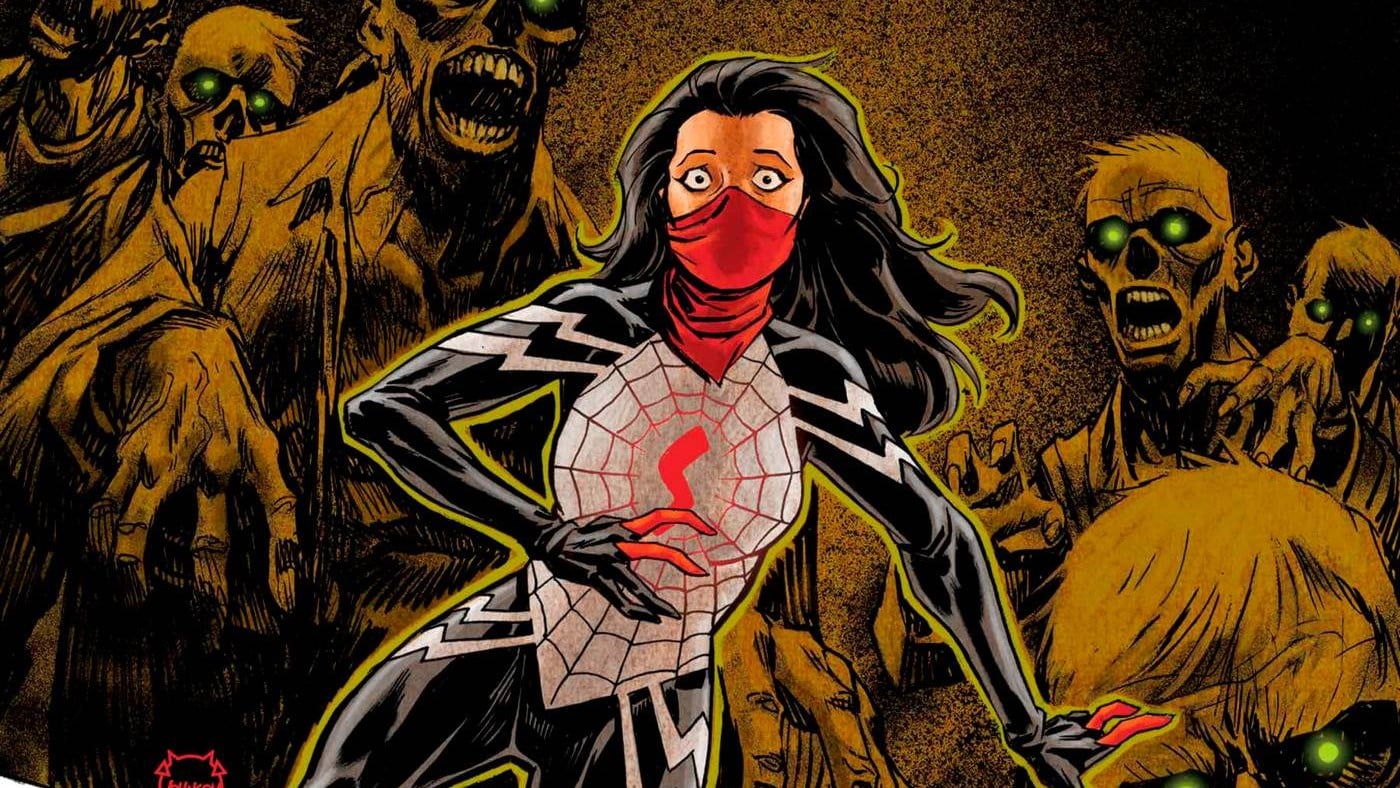It’s been a highly eventful and dangerous road, but Taskmaster has finally come to the end of it. With all the kinesic signatures he needs, he’s now able to unlock the Rubicon Trigger, clear his name, and get on with his life. There’s just one problem – the Black Widow still has him in her sights, and she’s not backing down. Written by Jed MacKay, art by Alessandro Vitti, colors by Guru-eFX, and lettering by Joe Caramagna.
Taskmaster has been a great series. I’ve enjoyed every bit of this limited run, and it’s everything a Taskmaster comic should be. Unfortunately, while there’s been a lot to enjoy in this final issue, it fails to stick the landing.
I’m getting ahead of myself, though, as there’s still a lot of great stuff to get into, starting with a full page poster image that reminds the reader of all that’s come before. It may feel a bit redundant for an image like this to recap the series immediately after an already well written recap page, but when it looks this good, that hardly matters. Taskmaster’s internal dialogue really plays up the excitement of this strange adventure coming to an end – something to come back to later.
Before that, it’s worth taking a closer look at his claim about his reluctant ally in all this, Nick Fury Jr., and his claim that Fury’s first meeting with Taskmaster is what truly made Fury the well-connected, Samuel L. Jackson emulating world-renowned spymaster that he is today. It’s a moment that MacKay excels at; mining Marvel continuity to better illuminate a character fact – in this case, Taskmaster’s sense of pride. Because here’s the thing – as great a moment as it is, with the art managing to portray Taskmaster magnificently as both heroic and menacing, it’s still one that only matters to him. It’s a fresh look at a formative experience for someone who is (arguably) a key Marvel figure – and a perspective that no one besides Taskmaster himself would likely have ever provided. MacKay consistently makes great use of forgotten or underutilized Marvel canon, and seeing the Marvel universe through Taskmaster’s eyes has been one of the best parts of this series.
There’s no time to dwell on that for too long, though, because the Black Widow has caught up to them, and she’s out for blood. What follows is the first sign that this conclusory issue is not all that it built itself up to be. Throughout the series, the Black Widow has been this relentless force. Her reputation as someone to be truly terrified of has kept building, and building, but when the final showdown against her happens, it’s not one that holds up against its legend. It’s a great sequence – the chase through the woods followed by Taskmaster pulling every fighting trick he knows just to try and throw Natasha off balance, with the colors doing a fantastic job of setting each panel apart, giving the action a dynamic feel. The problem is that it doesn’t really feel any different from the fights he’s had with Okoye, or Ami Han.
It’s not long after that that we get the reveal of who was actually behind things – surprise, surprise, Maria Hill is alive after all. Several pages of exposition once again make excellent use of Marvel’s complicated continuity, from as far back as Norman Osborn’s Dark Reign to his more recent turnabout in Amazing Spider-Man. While it’s a great use of canon, Hill’s plan itself feels far more convoluted than it needs to be, in ways that are neither satisfying nor amusing. MacKay goes to great lengths to justify the series’ premise – and it’s been a fantastic premise. It’s just that the reason behind it falls a little flat, and so does the way this series ends.
On paper, Taskmaster’s last-second heel turn sounds hilarious. It’s exactly the kind of petty thing he’d do. The punchline, however, fails to deliver, and comes across as abrupt and anti-climactic. You can see the pains MacKay took to set this punchline up – looking back at the series, it’s been hinted at all along. It still feels rushed, crammed in at the last minute after an equally rushed exposition scene. It’s a disappointing note to end such a wonderful and otherwise well-paced series on. As a sort of consolation prize, the final page of the series is gorgeous, as Taskmaster gleefully strides away from the chaos he caused. Vitti’s has had a whale of a time bringing life to Taskmaster’s skull mask, giving it a wide range of emotions, from cartoonish fear to this final, shit-eating grin – it’s a joy.
Despite its awkward ending, Taskmaster is still one of the best Marvel miniseries out there. Vibrant, fast-paced, delightfully cynical and just gritty enough to feel like a villain’s world, the series is a Marvel gem that I’m already looking forward to rereading. Its final issue may not have been its strongest, but it’s ultimately still a pretty great example of how to make the most out of a shared comics universe, and make all of its wonderful chaos feel fun.

